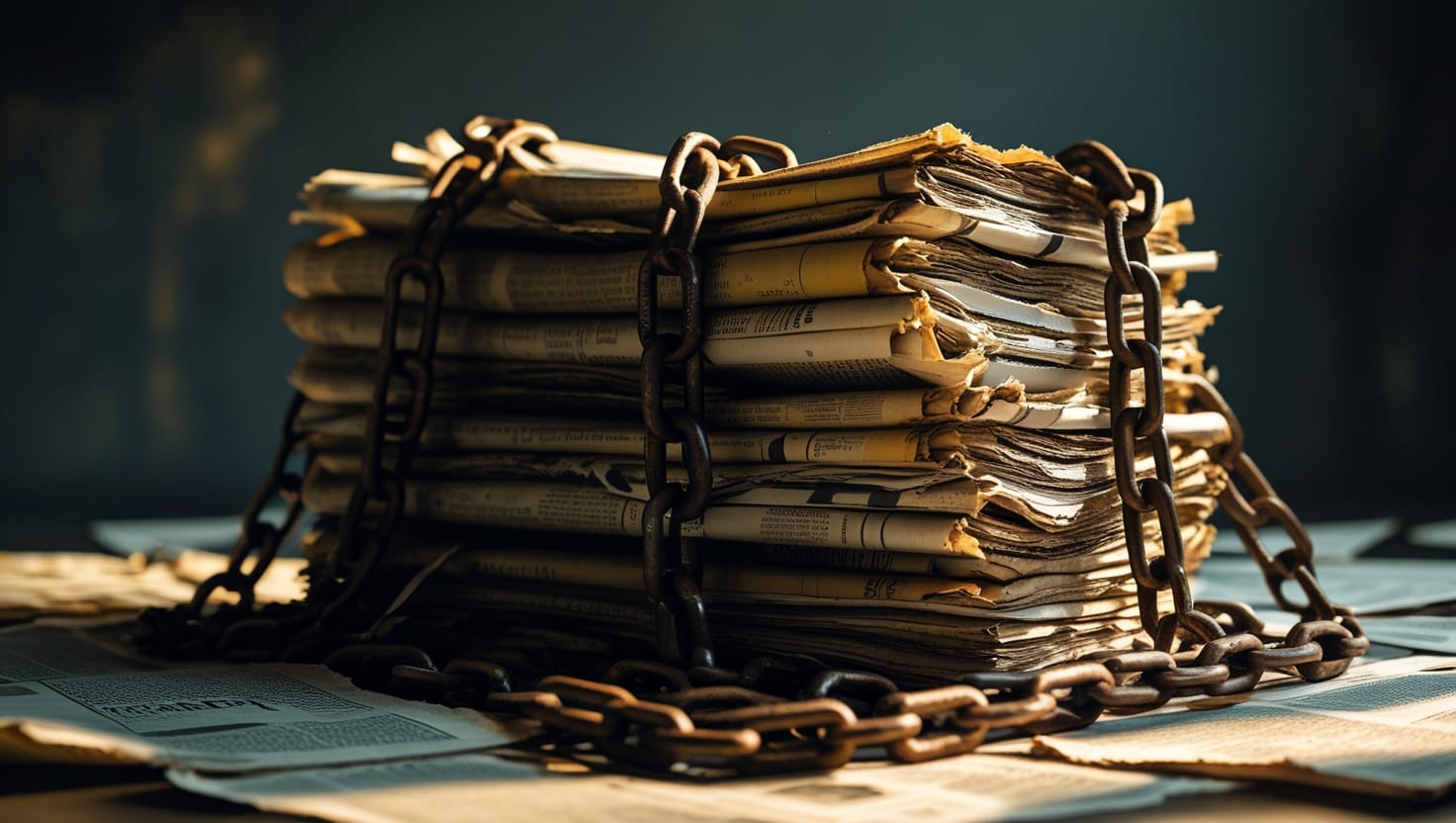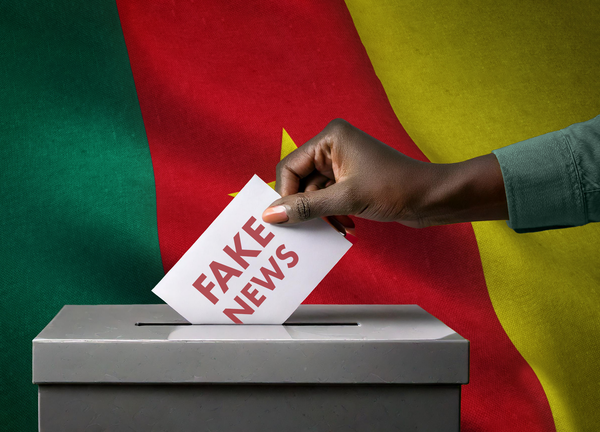On February 3, 2025, the Nigerian program press more was suddenly suspended by the government of General Abdourahamane Tiani, without any official explanation. An event is part of the control of a Nigerian media sphere, increasingly under pressure.
Following the coup d'etat of General Abdourahamane Tiani, on July 26, 2023, depicting the elected president, Mohamed Bazoum , Niger took an authoritarian turn. As soon as he came to power, General Tiani proclaimed himself "president of the National Council for the safeguard of the fatherland", during his first television speech. Since then, liberticide measures have been adopted, in particular concerning press freedom. On January 29, 2024, the Nigerian Minister of the Interior suspended, by decree , the activities of the Maison de la Presse. To replace this independent media organization, the Minister announced the creation of a new media management committee led by the Secretary General of the Interior Ministry. A big step back for Niger.
Despite some tensions with the media, under the government of Mohamed Bazoum, the protection of press freedoms was ensured. During his election to the presidency in 2021, he affirmed his commitment to the defense of freedom of expression and the press by opposing censorship. This speech had even been supported by legislative reforms.
On April 27, 2022, the Maison de la Presse du Niger welcomed the initiative of Mohamed Bazoum, to decriminalize the crimes of defamation and insult, then governed by the law on cybercrime . She made journalists far too vulnerable to possible arbitrary accusations. Souleymane Brah, Communication Secretary of the Maison de la Presse, greeted this decision: "We have always denounced this law (...) as a liberticide law. […]. Many colleagues have been arrested, such as Moussa Aksar. The government has understood that there is a need to move towards the promotion of press freedom in Niger. ”
Press freedom in Niger in net decline
Today, two years after the coup d'etat and the arrest of Mohamed Bazoum, the situation of the press in Niger is experiencing a dizzying fall. It fell in 80th in the Reporter Sans Frontières ranking , losing 19 places compared to 2023 (61st).
In this dynamic, the Nigerian media sphere has been the subject of a wave of control, by the Nigerian government since the coup. International media such as France 24, RFI and BBC have notably been prohibited in the country. Breakfast attacks in Niger also affect local media. On January 17, 2025, the Nigerian Minister of Communication suspended the TV television channel 3 TV and his journalist Seyni Amadou . Its sole wrong was wrong to have presented a barometer measuring the performance of ministers.
If the chain has been restored, this event represents an attack on press freedom, but also to freedom of opinion. The absence of supporting documents and transparency on the judgment of the Press Press program, which occurred on February 3, attests to the decline in freedoms and democracy.
The stranglehold on information in Niger is not limited to the censorship of large media groups like Canal 3. The Tiani government also employs targeted methods on individuals by pressure on journalists directly.
Journalism in Niger: a profession under tension
when they arrive in power, Abdourahamane Tiani explained that he wanted to restore order and fight insecurity. However, with regard to journalists, insecurity has never been so great. Since the coup d'etat, the examples of arbitrary arrests of journalists proliferate.
On September 30, 2023, Samira Sabou blogger and Nigerien journalist was arrested at the home of her mother in Niamey. According to Amnesty International, the journalist's place of detention remained unknown for 7 days, before her lawyer and her husband could see her. Very quickly, on October 11, Samira Sabou was charged with "production and dissemination of data likely to disturb public order. »»
More recently, in November 2024, the Nigero-Ivorian journalist, Serge Mathurin Adou is also charged, without real proof. He is accused of having brought "attack on state security" in Burkina Faso, a neighboring country and friend of Niger.
Faced with these phenomena, Drissa Traoré, secretary general of the International Human Rights Federation, brings a pragmatic observation: "The long list of attacks on journalists during the past year testifies to the determination of the authorities to restrict press freedom and the right of access to information". This rise in authoritarianism in Niger has certain effects on the psychology and professional activity of local journalists. Tchima Illa Issoufou, BBC radio correspondent in Niger, said he was threatened by the Nigerian authorities, accusing him of "destabilizing Niger".
These intimidation and pressures exerted by the Nigerian government kill local journalism as well as any democratic hope. Several Nigerian journalists have said that they were self -censored for fear of reprisals. On this subject, the consequences of this hardened control of information are felt on the population. The Nigeriens are increasingly difficult to access reliable information and not transformed by the government of Abdourahamane Tiani. This informational vagueness is also a fertile soil to manipulate the opinion of the Nigerians with the aim of glorifying the government in place in the collective imagination.
Freedom of the declining press in other African countries
The degradation of the situation in Niger is not an isolated phenomenon. Similar cases are visible in other African countries, with characteristics more or less close to Niger.
In Chad, upstream of the legislative elections which took place at the end of last December, 40 online media decided to make "radio silence" in protest to increasing restrictions of their freedoms. The Chadian media denounced the ban on the High Authority for the Media and the Audiovisual to publish video or sound content. Gérard Daliam, editor -in -chief of N'Djam Post, testifies: “It is incomprehensible. It is unjustified. This decision is in contradiction with law 31 of 2018, and now the president of Hama says that online media do not have the right to disseminate podcasts and videos, but this law 31, is it for whom? ».
On January 23, 2025, African Civil Society organizations (OSC) expressed their "deep concern" about human rights and journalists in Ethiopia. According to the International Federation for Human Rights (FIDH), the situation of journalists in Ethiopia continues to get worse. The NGO denounces acts of extrajudicial harassment, defamation, intimidation, threat campaigns, arbitrary arrests and detentions as well as physical assault against journalists.
Media oppression in Africa is therefore not limited to Niger alone. There is a global phenomenon on the continent's scale, although countries like Mauritania and Tanzania are improving the situation in the press.
The situation of the press in Niger has therefore deteriorated considerably since the coup d'etat of General Abdourahamane Tiani. The Nigerian authorities, by means of liberticide actions, contribute to the erosion of fundamental freedoms of the press. This phenomenon goes hand in hand with a Niger who closes on himself, while putting pressure on his whole civil society.
Thus, the authorities' will to control the information could break out in the face, as the government's repression intensifies. By hardening its control, Niger develops its opposition, which once again obliges it to strengthen its limitations. It is therefore advisable to wonder how the country will come out of this vicious circle and what are the other professions that will pay the price.









